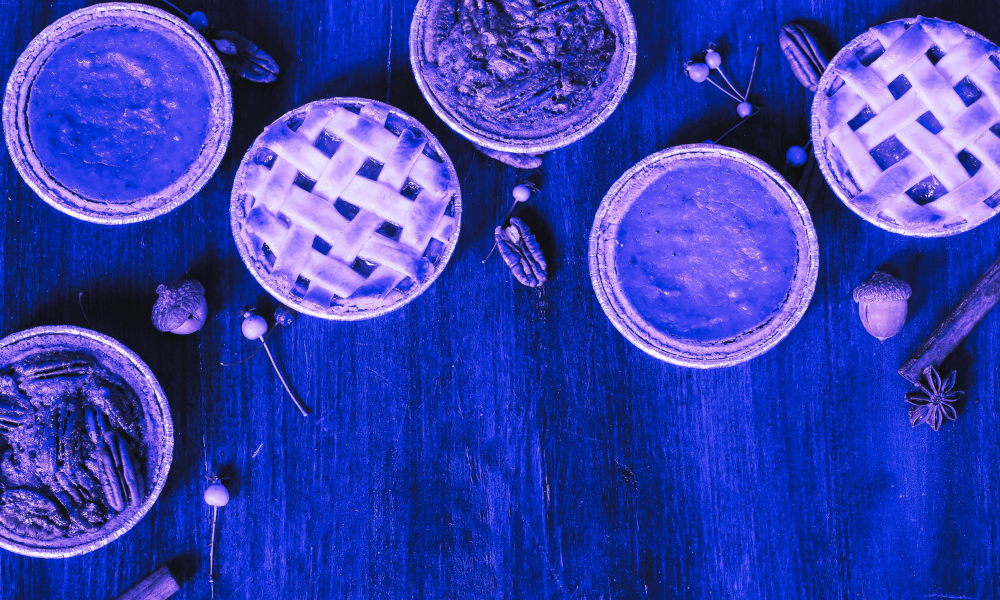It’s three minutes past seven on a rainy Monday night, and Keaton Montgomery can’t decide on the brand of apples to put in his cart. Growing up, he always thought there were three—red, green, and yellow. His mother used to buy the delicious golden yellows, never a week passing when the fruit basket on the center of the kitchen island didn’t sport those fiber-rich snacks with the sunshine gleam. But once in a while, usually after Keaton endured a bad day at school—unwarranted torment from his senile history teacher Mr. Tuggerson, another colorful diss from that cheerleader Brenna—Keaton walked into the kitchen to find red apples, all big and lopsided, staring back at him with the eerie glow of a vengeance demon. And after at least a day of whining, he always ate them reluctantly, each half-assed bite revealing the putrid yellow inside, its slimy texture enough to send Keaton running into his bedroom to jot his grievances down in his bottom-drawer notebook. Weirdest of all was the time before his sixteenth birthday when he saw the green apples in the fruit basket. He didn’t know what to do with those, so he just threw them in the roaring fireplace when his father wasn’t looking.
Keaton rubs his fingers against the golden delicious variety tonight. Those seem to be the safest bet, considering he knows their taste, but Keaton’s aware he doesn’t have a clue about apples when it comes to baking pies. Maybe the apple he hates most—those little red bastards—will make for something tasty, the way he loves pumpkin puree in anything that comes out of the oven, but never—gross—by itself. Or he could take a chance on one of the other varieties, all with fancy names that mean nothing to him. They look the same, of course—Pink Lady, Honeycrisp, Gala, Fuji. He takes out his phone and Googles “best apples to buy at grocery store for making pies for my grieving family,” and every result gives him not the one choice he wants but several. The top article, one that boasts about the juiciness of the Jonagold apple, is as useful for Keaton as receiving an endoscopy for knee pain.
He puts his phone away, surveys the crowded stacks of apples one last time, and takes a chance on the Fujis, the non-organic brand—it doesn’t hurt that they’re the cheapest by the pound. He grabs enough for four pies, then throws the heavy plastic bag on top of his other food. There’s not much room for anything else—his cart is so packed that when Keaton pushes it forward, he has to use all his strength, grit his teeth, try not to sweat like he’s in a hardcore training session at the gym. He makes his way to the front of the grocery store, and when he passes by the fifteen items or less line, an old frizzy-haired lady laughs something fierce.
“You should stop right here, honey,” she says, holding a bottle of gin in one hand and a box of aspirins in the other. “Just to see the look on the cashier’s face.”
“No,” Keaton says. “I think they’d probably shoot me.”
“What in the world you doin’ with all that stuff, anyway? Is there an apocalypse comin’ I don’t know about?”
“Actually… it already came.”
Keaton stops in the next aisle over, which has a line long enough for the old lady to still see him around the magazine racks. She stares at the items in his cart, then proudly nods her head like she solved a murder mystery. “Butter, milk, corn syrup. I take it you’re on baking duty.”
“Yep, that’s right.”
“Your mom expectin’ you to do that all by yourself?”
Keaton gives her a polite nod, then slams his weight against the cart when the line moves forward. The lady disappears from his view in the seconds that follow, not that he’s sad about it. He didn’t like where that conversation was headed.
“Well, good luck with the baking, honey!” he hears her shout.
“Thank you!” he shouts back as he takes the plastic bag of Fuji apples and places it on the conveyer belt. Then he puts down the butter, the sugar, the two-gallon jugs of milk. That’s all there’s room for, so Keaton stays still for a minute, alternating between biting on his tongue and tapping his father’s credit card against his chest.
When the middle-aged guy before him finishes up a minute later, the cashier lady, plump and red-haired, waves Keaton forward.
“And how are we doing today?” she asks.
“Honestly? I’ve been better.”
The conveyor belt starts moving again, and Keaton quickly piles up the items, as much as three boxes on top of each other. The cornstarch, the raisins. The flaked coconut, the sour cream. The other fruits, like blackberries and strawberries. All the little jars of spices, like cinnamon and cloves and nutmeg. He notices the cashier lady shake her head after the three-minute mark, but Keaton keeps tossing his items on the belt, not apologizing, not going into any stories or explanations. He drops a bag of lemons, then stacks up frozen pie crusts, all thirty-nine of them.
“Thirty-nine?”
“That’s right,” Keaton says as he approaches the credit card reader. He notices a bag boy hard at work packing away his items into plastic bags instead of paper. The guy didn’t even ask.
“This for a birthday party?” the cashier lady asks.
Keaton shakes his head. He waves the credit card by the machine, waiting for her to finish ringing up all the pie crusts.
“Let me guess. Easter. When is that again this year? March or April? I can never remember—”
“It’s for a funeral,” Keaton says.
She purses her lips and looks down. “Oh. I’m sorry.” She finishes the last of the scanning. “Comes to four-hundred twenty-seven and ninety-six cents. Credit or debit?”
“Credit, please.”
The cashier lady wishes him well before he leaves, and that old woman waves to him from the other side of the parking lot, but Keaton doesn’t say another word to anyone on his way out of the supermarket. He stays quiet the same way he’s been quiet the past four days, not talking much to anybody, certainly not to his sister or to his father. He unloads the grocery items into the back of his car, and he kicks his cart up against the curb. He watches it crash against its side and launch back into the street, over to an emergency handicap spot.
When he sits in the driver’s seat of his Jeep Cherokee, he closes his eyes and takes a whiff. He figures he’ll smell something chocolate-y first, or maybe the coconut, or one of the tangier fruits. But as he opens his eyes and turns on the ignition, he chuckles. It’s the apples he smells, those Fuji ones in the back. Of course it’s the apples.
#
When Keaton pulls inside his garage, he finds his older sister Anessa sitting on the stairwell, and he can already tell what she’s doing before he turns off the ignition. She is alternating between crying hysterically and chatting up a friend on her phone, and he expects her to run inside the house as soon as she sees him, the way she’s been fleeing her sixteen-year-old brother her entire life, but she stays put. She even ends the call by the time Keaton steps out of the car, like she wants to speak to him for once.
“Jeez, that took you forever.” She stands up and leans against the staircase banister. Keaton can’t believe how thin she’s getting. He figures she can’t weigh more than ninety pounds, ninety-five at the most. “I mean, really. Who spends two hours at the grocery store?”
“I didn’t take two hours,” Keaton says, opening the back of the Cherokee. He waits for something to fall and break on the ground, the eggs most likely, but nothing does. He grabs three of the bags, then asks, “You gonna help me or you just gonna stand there?”
“I don’t have to help you.”
“Why? Because you’re sad?”
“Exactly.”
He moves past her and trudges up the stairs, a difficult task given the heavy boxes of sugar banging against his knees. He eventually reaches the top and then heads inside, grateful the pantry’s only a few steps away. He can’t let his father see everything he bought, not yet. He doesn’t want to ruin the surprise.
Keaton shoves the bags under the pantry’s bottom shelf by the numerous bottles of wine. He re-enters the hallway when he hears footsteps coming up the stairs.
“Are you kidding me?” Anessa asks, her voice loud and aggravated. She walks down the hallway carrying a single plastic bag. It doesn’t even look heavy.
“I’d like to ask you the same question. That’s all you could handle? Seriously?”
“Hey, you have enough shit in the back of your car to fill an entire bakery. What the hell are you up to?”
“Nothing. I told Dad I’d make some pies. What?”
She drops the bag beside the pantry’s sliding door. Her phone starts ringing, but for once in her life, she ignores it. “Key word, some. Is this another game you’re playing? A cry for attention? Grow up.”
She shoves Keaton out of the way and storms into the kitchen, slamming her phone against her ear as soon as she’s past the dishwasher. For a moment Keaton thought he might actually bond with his sister, might have a worthwhile conversation that didn’t end in anger or bitter rivalry. Especially considering all that’s happened.
He goes back to his car and continues moving into the house three to four plastic bags at a time, and after ten minutes, he feels the same way he did back when his mother took him to the local Chinese restaurant and he ordered the dinner special that came with sesame chicken, fried rice, chow mein, potstickers, eggrolls. Keaton would eat and eat and eat, and still, he’d look down, his mother asking him endless questions about the girl he likes at school (Savannah) and why he took a year off soccer (Savannah), and still, there would be as much food on the plate that he started with.
Keaton returns down the steps, approaches his car for the fifth time, and looks inside to see more plastic bags piled on top of each other in the back seat, even a few hunkering atop the needless cup holders on the side. It’s his Chinese food in front of him all over again, except this time it’s baking items, an endless arsenal of sweet treats that Keaton recognizes is over-the-top, unwarranted, completely ridiculous. But he grins, and shrugs, and keeps bringing the groceries inside, over and over for what feels like forever until all that’s left in his backseat is a few empty plastic bags and the twenty-foot-long receipt.
#
Celine Dion’s voice blasts through the overhead speakers as Keaton flips through the pie book, the batter on his fingers already staining the edges of the pages. He’s finished with the fruit pies, like cherry and blackberry—even the complicated gooseberry—and now he’s moved on to chapter two: cream pies. The oven’s beeping again, and there’s smoke on the other side of the kitchen, and he really needs to stuff the apple pies into the refrigerator, but first, he has to remind himself of the ingredients for chocolate chess. He thought he had memorized them yesterday, but his mind has effectively turned to sludge. Was evaporated milk the extra ingredient? Or was it the sweetened condensed milk? He reaches the end of the book and doesn’t see the recipe. Did he make the whole thing up in his head?
“Eeny, meeny, miny, moe” re-appears in his life for the first time in years, and he opens the can of evaporated milk. He adds a little vanilla, then an exorbitant amount of melted butter, and as he churns together the eight simple ingredients, he stares at his right bicep, he can’t help it, knowing by the end of the day that puppy’s going to be bulging.
Keaton pours the batter into a frozen pie crust, then rescues the other four pies from the oven. It’s been forty-five minutes, not fifty like the recipes suggest, but the day’s going by fast, and really, how much difference does five minutes make?
The first pie that goes in is the chocolate chess, then he stuffs both of his peanut butter custards inside and slams the oven door shut.
He returns to the book and wonders what he should get started on next. He’s already baked more than enough, but he made a promise to his mother and he’s not backing down now. Besides, there’s only one chapter left.
“Cupboard pies. These should be easy.”
He walks to the kitchen island, rubbing his arms against his forehead to soak up the sweat. He glances toward the fridge and wonders how many sweat globs were baked deep down in the crevices of those pie dishes, and he tries to make the thought go away, but it won’t. He pulls the sugar boxes toward him as he turns to the first recipe in the chapter. Nelly’s Sugar Pie. All he needs is two cups of sugar, three eggs, vanilla, flour, and a cup of melted butter.
“Sugar Pie?” He turns on the stove. “Should be called Nelly’s Heart Attack.”
Keaton stops and stares at the spice cabinet. There are all sorts of fancy stuff in there, from three varieties of cinnamon to organic pumpkin pie spice, but he doesn’t see them, doesn’t notice a single item on the shelf. He heads toward the kitchen table, walking past the flour disaster on the island and the spilled almond extract on the hardwood floor. He sits in the closest chair. Shoves his elbows against the hard surface. The Celine Dion music keeps playing, but he doesn’t make out the words any longer.
The last time he baked a pie with his mother, the last time he made anything with her in the kitchen, Celine Dion’s voice had been playing in the background. It was four years ago on Christmas Eve, his mother’s favorite time of year, and she had an aunt coming in from New York she hadn’t seen in years. She kept asking Keaton what kind of dessert he thought she’d like, as if he had an actual clue. She could never decide, so she ended up making everything, six different desserts to accommodate any person’s tastes. Raspberry cheesecake. Chocolate fudge cake. Donuts. Eclairs. She put Keaton on pie duty, and it took him more than an hour to whip up two—a fresh peach pie and a coconut meringue. Her aunt Penny hadn’t liked any of the desserts. She turned out to be a gluten-free vegan who preferred a glass of sherry after dinner.
But the anti-climax later that night took nothing away from Keaton’s enjoyment of spending time with his mother. He had forgotten how much fun it was to be with her, running around the kitchen searching for ingredients, tossing the occasional chocolate chip morsel into her mouth or dabbing whipped cream in her curly golden hair.
He grew up baking all sorts of goodies, but by the time he turned thirteen, it wasn’t cool any longer to bake pies, let alone bake pies with his own mother. One morning in the locker room one of his many eighth-grade bullies Geoffrey called Keaton a momma’s boy, which didn’t sound so bad to him, but the laughter from the shirtless jocks surrounding him sunk his confidence and hurt his head, and by end of the period he decided the less time spent with his mother the better. And so he said no when she asked him to help her with dinner, and he said he had other plans when she invited him to a cooking class at the local community college. Three long years it’d been since he dipped a finger inside a bag of all-purpose flour, time not well spent. Wasted forever, like the love in his heart.
The track on the CD starts skipping, and so Keaton gets his butt off the chair and walks to the music station by the TV. He presses the skip button, and then track eleven begins. “Because You Loved Me,” his mother’s all-time favorite song.
Keaton returns to the kitchen island. There’s no more time to waste. His father will be home any minute, after all. He cracks the eggs, adds the sugar. He barely has to vary the recipes for the other seven pies, only having to add a few drops of lemon juice in the lemon chess and mix butterscotch chips into the pecan fudge. The oven beeps, and then again an hour later. He pulls out five more pies. The kitchen smells like a dream.
Keaton takes the final crust out of its packaging. He has one pie left. The one he saved for the end. The one that’s not even in the book.
He hears the garage door open but tries to ignore it. He mixes the dry ingredients, then starts melting the bar of dark chocolate with the butter. He prepares the milk, breaks the eggs, adds a teaspoon of vanilla. The mud room door opens, and footsteps echo down the hallway. Loud. Agitated. Faster than normal.
When he turns the corner, Keaton’s father, James, drops his briefcase on the ground.
“What in the goddamn hell,” he says.
“Surprise!” Keaton holds the bowl up high and whisks the wet ingredients with the dry.
James removes his sunglasses and steps forward. He looks around the room like it’s a bloody war zone. He runs his index finger along the kitchen island, and when he raises it, it’s covered top to bottom with a thick mixture of butter and flour.
“It’s an absolute mess in here!” his father says. “What have you been doing?”
“Please don’t be mad. I went a little overboard, I’m sorry. It was something I had to do.”
“Something you had to do? I asked you to bake a few pies for the funeral.” He opens the refrigerator. Before that afternoon, the fridge was filled with lots of things—condiments, lettuce, leftovers in Tupperware. But now it’s just pies, from the top shelf to the bottom.
“I did what you asked—”
“No, you made a complete joke out of this.” He turns to his son, his eyes narrowed, his face red with rage. “The way you make a joke out of everything, Keaton. I asked you to do one thing for the funeral. Make your mother’s favorite dessert.”
“But…” Keaton lowers the bowl to the counter. “That’s what I did.”
“There’s only going to be our close family and friends, not the whole town. A few pies meant three, maybe four. Not four hundred. What am I supposed to do with all of this?”
“Bring them. Dad, I don’t get why you’re upset. This is a good thing. Mom loved all of these pies—”
“Well, is she gonna eat any of them? Can you answer that?”
Keaton is used to his father yelling at him, but rarely ever has he made him cry. The tears well up in Keaton’s eyes, but he shakes his head, doesn’t allow them to fall. He doesn’t want his father to think he’s weak.
“I’m sorry,” Keaton says.
His father approaches him. For a moment Keaton thinks he might hit him, but instead he keeps his hands to his sides and says, “Here’s all I ask. That you clean up this mess, and that you pick three. Just three of the pies to bring tomorrow.”
“But how am I supposed to choose?”
“I don’t know. Figure it out.”
As soon as his father leaves the room, Keaton returns to the bowl and keeps stirring. He never wants to stop stirring. The aroma of warming chocolate wafts through the kitchen, the sound of loud buzzers imminent, the last pie still to be finished.
One more chance to make this right.
#
The next night, long after the funeral and hours after his father has gone to sleep, Keaton rolls off his bed, puts on his pajamas, and walks upstairs. He only means to get a glass of water, but he hasn’t even reached for a cup from the cupboard when all the pies on the counter call to him, most in plastic Tupperware, a few uncovered and shoved against the corner toaster. He picks up two of them and places them in the pantry room floor. Then he picks up three more, five more. He opens the refrigerator and takes the custard pies out from there, too, the heavy berry one first, then the light caramel ones near the top. Keaton takes a seat in the center of the pantry, no fork or spoon in hand, staring at all the pies. He licks his lips. Takes a breath. Opens a box.
His modest two-story house, the one he’s lived in his whole life, has always been quiet at night, but awhile later, thirty minutes, maybe forty, he hears something. It’s faint but noticeable in the hallway. It sounds like footsteps coming toward him, their echoes growing louder. He wants it to be his mother sneaking a midnight snack, the way she sometimes did after baking pies for one of his birthday parties. It was never cake, no, no. Not for him, and never for Anessa either. His mother always spent the afternoon baking a variety of pies, some fruit, some custard, some an unusual mix of the two. And each pie always came with one candle in the center—one for every year he’d been alive. For his birthday last June, Keaton spent more time blowing out one candle after another than eating his chosen slice of her famous blueberry crumble.
It’s not his mother but Anessa who opens the sliding door to the pantry. She looks down.
“Oh, hey,” Keaton says. He’s covered in at least twenty half-eaten pies, cereal boxes and cans of soup and each one of his fingers smothered in colorful creams and flaky crusts. His face is similarly smothered, chunks of red and blue and brown and purple everywhere, in his hair, on his cheeks, on the tip of his nose.
“What…” his sister says, her eyes narrowing like she’s about to scream for their father, but Keaton knows she won’t.
“Can you believe it, Anessa?” He lifts his index finger to his mouth and licks off the chunky vanilla custard. “Thirty-nine,” he says. “Mom never made it to thirty-nine.”
He begins to tremble, his hands first, and then the rest of him, and when Keaton collapses toward the hardwood floor, Anessa drops to her knees and pushes the pies aside, and wraps her arms tightly around her brother, rocking him back and forth as he cries against her shoulder, the whipped cream below soaking up his salty tears.




